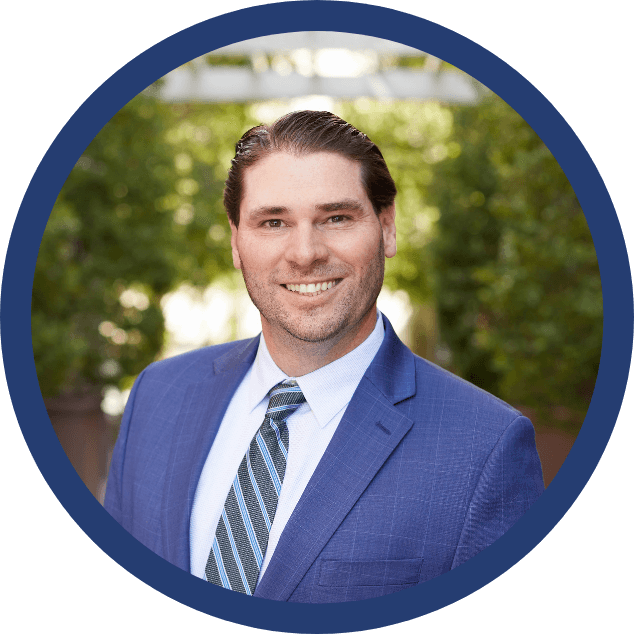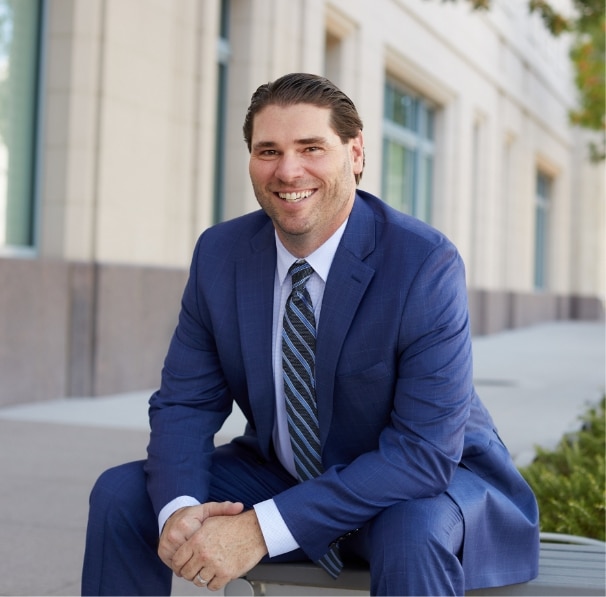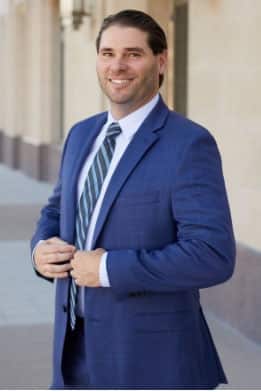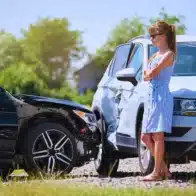Determining who is liable in a car accident, the owner or driver, can be difficult in Nevada. The driver of a vehicle responsible for causing a crash is usually liable for the damages arising from the accident. The car owner can be liable, in certain instances, if the car owner allowed another person to drive the car and that person got into a car accident. This legal doctrine is known as negligent entrustment.
Table of Contents
Toggle
This legal doctrine holds the car owner liable if the owner permits someone he or she knows is incompetent to drive a car, and that person causes a car accident. The doctrine can also apply if a car owner was aware or should have been reasonably aware that an incompetent driver was operating his or her vehicle and did not stop it.
Who Is Liable in a Car Accident the Owner or Driver?
You may be wondering, “is the owner of a car liable for an accident?” Various factors determine who is liable in a car accident. Auto insurance coverage generally applies more to the car than the owner. The usual liability rules will apply in most cases.
Under Nevada car accident laws, the driver of a vehicle responsible for causing the accident is usually who is liable in a car accident, and is the one responsible for damages stemming from the accident. These damages might include medical bills, lost earnings, property damage, long-term care needs, and pain and suffering.
If a person is driving a borrowed vehicle and gets into an accident caused by someone else, the at-fault driver’s insurance provider is generally liable for covering the damages. If the driver of the borrowed vehicle is at fault, the car owner’s insurance coverage will usually pay for the damages up to the policy limit.
An exception could apply, making the car owner fully responsible for all damages. If the car owner permitted an incompetent or unlicensed driver to operate the vehicle, for instance, the car owner could be responsible for all damages arising from the accident. Impaired drivers and drivers with a record of reckless driving are examples of unfit or incompetent drivers.
Let’s assume there is no exception and the accident-related damages surpass the car owner’s policy limits. In that case, the driver’s auto insurance would be responsible for covering the remaining damages up to his or her policy limits. An accident victim could pursue damages from two different insurance companies for one accident.
Determining who is liable in a car accident can be challenging when the driver of a vehicle responsible for causing an accident is driving a borrowed car. A car accident lawyer will investigate your case and explain your legal options for recovering damages after the crash. The lawyer can also help you identify who to sue if you are a passenger in a crash caused by a non-owner.
Primary and Secondary Insurance Coverage When a Non-Owner Wrecks a Car
If the driver of a vehicle responsible for causing a crash that leaves another person injured is driving a borrowed car is found to be who is liable in a car accident, the car owner’s insurance would serve as the primary insurance coverage. It will cover the damages suffered by the injured party up to a specified dollar amount.
The driver’s insurance will serve as the secondary insurance coverage. It will cover the difference between the injured party’s recoverable damages and the car owner’s policy limit.
Let’s assume the car owner’s bodily injury liability is $30,000. The recoverable damages of the injured party are $40,000. Upon exhausting the first $30,000 in coverage from the primary policy, the driver’s insurance coverage would pay for the remaining $10,000.
The Car’s Owner Could Be Liable for Negligent Entrustment
Negligent entrustment is a concept that covers situations when a car owner shares liability even if he or she was not present at the time of the accident. This legal concept applies when the car owner gives the key to a person who is:
- Impaired by drugs or alcohol
- Legally prohibited from driving
- An unlicensed minor
The car owner could also be legally responsible for negligent entrustment if the owner knows that a driver is a person who is incompetent to drive or is known for careless driving conduct. The law does not require the car owner to carry out a background check on a person before handing over the car keys. A valid driver’s license is usually sufficient proof that a person is fit to drive if there were no other confounding factors when the car owner handed over the keys.
When Else Might Car Owners Share Liability for the Car Accident?
Negligent Maintenance
A car owner must ensure the vehicle is in safe working condition. If a mechanical failure stemming from negligent car maintenance causes a crash, the car owner may be responsible. This consideration applies even if someone else was driving the car during the crash.
The negligent maintenance concept may arise if the car owner fails to carry out the required maintenance, including inspecting tires, refilling fluids, and fixing mechanical issues. This concept may also apply when the owner fails to act even after getting a vehicle defect alert.
Vicarious Liability
This legal doctrine considers a superior (employer) liable for the reckless actions of subordinates (employees). If an employee driving a company car causes an accident, the employer may be legally responsible.
Vicarious liability appears more frequently in truck accident claims. Besides that, employers can be legally responsible for motor vehicle accidents involving any commercial vehicle. A commercial vehicle, in this case, may include cars used for delivering goods and transporting people.
What If the At-Fault Driver Did Not Have the Car Owner’s Permission?
If the liable driver was driving without the car owner’s permission, the car owner’s insurance would not extend coverage to the driver. Similarly, the car owner’s insurance policy would not pay for damages incurred by injured persons in that accident. In that case, the liable driver’s insurance serves as the primary coverage.
Proving the Car Owner Is Responsible for the Crash
If you got injured in a car accident caused by a person driving a borrowed vehicle, you might ask, “is it worth getting a personal injury lawyer?” The answer is yes. An accident lawyer is your best bet at demonstrating who is liable in a car accident and recovering the full extent of your damages.
The accident lawyer will determine whether your injuries satisfy the seriousness threshold. The lawyer will review your medical records, medical invoices, receipts, and expert testimony to determine if you are entitled to compensation from the liable party.
The lawyer will then compile evidence to prove who is liable in a car accident, the owner or driver. The lawyer will collect photos of the accident scene, eyewitness statements, footage from surveillance cameras near the accident scene, and a copy of the police report.
The lawyer will finally demonstrate that the car owner was aware or should have been reasonably aware that the driver was incompetent to operate the vehicle. The lawyer may, for instance, look at legal records to figure out if the driver got a ticket for breaking a traffic law. The lawyer may also investigate the driver in question to determine if the driver had sufficient training and a valid driver’s license.
Will Your Rates Go Up If Another Person Causes a Crash in Your Car?

If someone else causes an accident while driving your car, you might ask, “will my insurance rates go up?”. The terms of your motor vehicle insurance policy will determine how the accident will impact your insurance premiums. Lending your car to someone else does not change how your car insurance works. If another person causes a crash in your vehicle, your insurance rates will generally be impacted the same as they would if you were personally at fault for the accident.
Several factors will determine how much your premiums will go up. The first one is the accident severity and the extent of damages suffered. A major accident that costs your insurer $200,000 could cause a more significant increase than a minor one that costs $1,500 in damage.
Your previous driving record may also come into play. Your premium rates might increase more considerably if you have a recent record of accidents or reckless driving behavior than if it is your first accident or violation in ten years.
How risky is it to insure you? Insurance companies evaluate various factors when calculating your premiums. Your insurer will consider the recent accident when determining your risk and your new rates.
Will Your Rates Increase If You Are Not at Fault?
If the accident was not your fault or the fault of the driver who borrowed your car, you might wonder, “will my insurance go up if I’m not at fault for the car accident?” In Nevada, your insurance rates will not increase due to an accident that is not your fault or the fault of someone who was driving your vehicle. The personal injury claim will be filed against the at-fault party’s insurance company, and they will be liable for your recoverable damages.
How Can You Lower Your Rates After a Car Accident?
If the person driving your car is determined to be the person who is liable in a car accident, and your insurance premiums increase as a result, you can take steps to bring your rates back down. These include:
Checking Out Discount Plans
Most big insurance providers have discount plans that can help you lower your auto insurance expenses. You might be receiving some discounts from your insurance provider already. You just need to find out if you are eligible for any other discounts your insurer is offering.
Completing a Driver’s Education Course
Most insurance companies offer their clients a discount for completing a driver’s education course. Completing an accident prevention or defensive driving course can help lower your rates if they have increased after an accident.
Taking Advantage of Accident Forgiveness
Including accident forgiveness in your regular policy is another effective way to lower your premiums after a crash. Some insurance companies offer accident forgiveness as an add-on to your regular car insurance policy. This feature is often available to drivers who have maintained a clean driving record for years.
Finding New Car Insurance
Looking for a new auto insurance plan can also help you cut your insurance costs significantly. Start comparing quotes from other insurance providers once your current insurer notifies you that your premiums will be increasing. Ensure you compare several quotes before settling on a plan that meets your unique needs and budget.
Waiting It Out
Enduring high insurance costs for a couple of years is also an option for dealing with a sudden surge in rates after an accident. In Nevada, most accidents disappear from your record after three years. Once the three years pass, the accident will not affect your premiums. Ensure you embrace safe driving practices during this period to keep a clean driving record.
What to Do After Someone Else Gets into an Accident in Your Car
If someone else crashes in your car and you suffer injuries, it’s best to act fast. Car accidents in Nevada have a two-year statute of limitation. This deadline starts on the date of the car accident.
Involve a Car Accident Lawyer
Getting a car accident lawyer involved is an excellent first step. Your attorney will review various factors to identify who is liable in a car accident and the insurance coverage that may be available.
If the person driving your vehicle did not cause the accident, a skilled lawyer will ensure that you will recover reasonable compensation for your losses. The at-fault driver and his or her insurance company must cover injured victims’ medical bills, lost wages, and pain and suffering, as well as the cost to repair or replace your vehicle.
The at-fault person’s insurance provider may try to lower the value of your claim or deny it altogether. An accident lawyer will be instrumental in safeguarding your rights. The lawyer will prioritize your best interest when negotiating with the insurance provider. The ultimate goal is to determine who is liable in a car accident and help you receive the highest possible recovery.
Document the Accident
Contact the police immediately after the crash. The police will come to the accident scene, interview the involved parties and witnesses, and prepare a report. This report is one of the documents you will need to file your insurance claim.
If you were physically present during the crash, ensure you take notes, photos, and videos. Note as many details about the accident as possible, including the number of vehicles involved, color, model, and license plate. Take pictures or videos of the accident scene, damage to the property, and anything at the scene that might help demonstrate how the accident occurred. Ensure that you exchange contact and insurance information with the other driver. Also, identify witnesses at the scene and note their names and phone numbers. If you were not in the car during the accident, ask the driver to do these things. These steps can help determine who is liable in a car accident.







